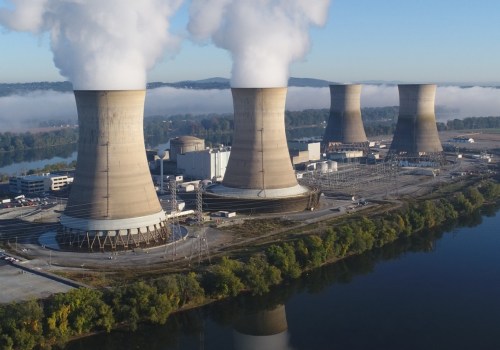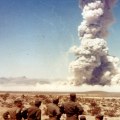Nuclear energy is one of the safest sources of energy in the world, but can it still explode? The answer is no, a nuclear explosion cannot occur because the fuel is not compact enough to allow an uncontrolled chain reaction. The MIT reactor has a large amount of water and core structural materials that slow down neutrons before they reach other fissile atoms. However, nuclear power plants can still experience accidents that can cause the release of radioactive materials. This is due to the process of uranium fuel being converted into other radioactive materials.
If an accident occurs at a nuclear power plant, heat and pressure build up and steam, along with radioactive materials, can be released. The odds of a nuclear disaster occurring are low, but they are still present. This is why it is important to take all necessary precautions when dealing with nuclear energy. Nuclear reactors can operate for long periods of time without human interference, but they are not designed to do so.
In the event of a natural disaster or power outage, backup systems would activate to keep the reactor stable until the fuel runs out. However, if backup power is also compromised, the reactor would eventually heat up and explode or melt through the reactor chamber. Studies conducted by organizations such as the World Health Organization have concluded that the health effects of nuclear accidents from radiation have been very small. The Chernobyl and Zaporizhzhia nuclear power plants are two examples of major accidents that have occurred in recent years.
In early March, when Russia began bombing Europe's largest nuclear power plant, Zaporizhzhia, concerns grew about a possible nuclear fusion. It was later discovered that senior officials had ordered engineers to turn off security systems before investigating a power outage late at night. This resulted in the melting of three reactors of the nuclear plant and the release of enormous amounts of radioactivity. It was one of the largest nuclear power plants of its time and had the best engineers working to maintain it.
Even in the worst case scenario, a rupture of the reactor vessel would not entail any nuclear explosion, only a limited dispersion of radioactive materials. Citizens have become very aware of waste pools and have questioned their presence in populated areas, yet environmental activists have long tried to keep nuclear waste in power plants, insisting that its disposal poses serious dangers. Last winter's “bomber shoe” tried to detonate not a nuclear device, but rather a relatively available and very dangerous chemical compound hidden in its shoes. Harnessing the power of the atom and mitigating the risks of nuclear energy to the best of our ability is one of the ways to achieve a cleaner energy future. As long as we try to harness the power of the atom, the odds will fall in favor of disaster. But should we stop trying? Not necessarily - it is important to take all necessary precautions when dealing with nuclear energy.






